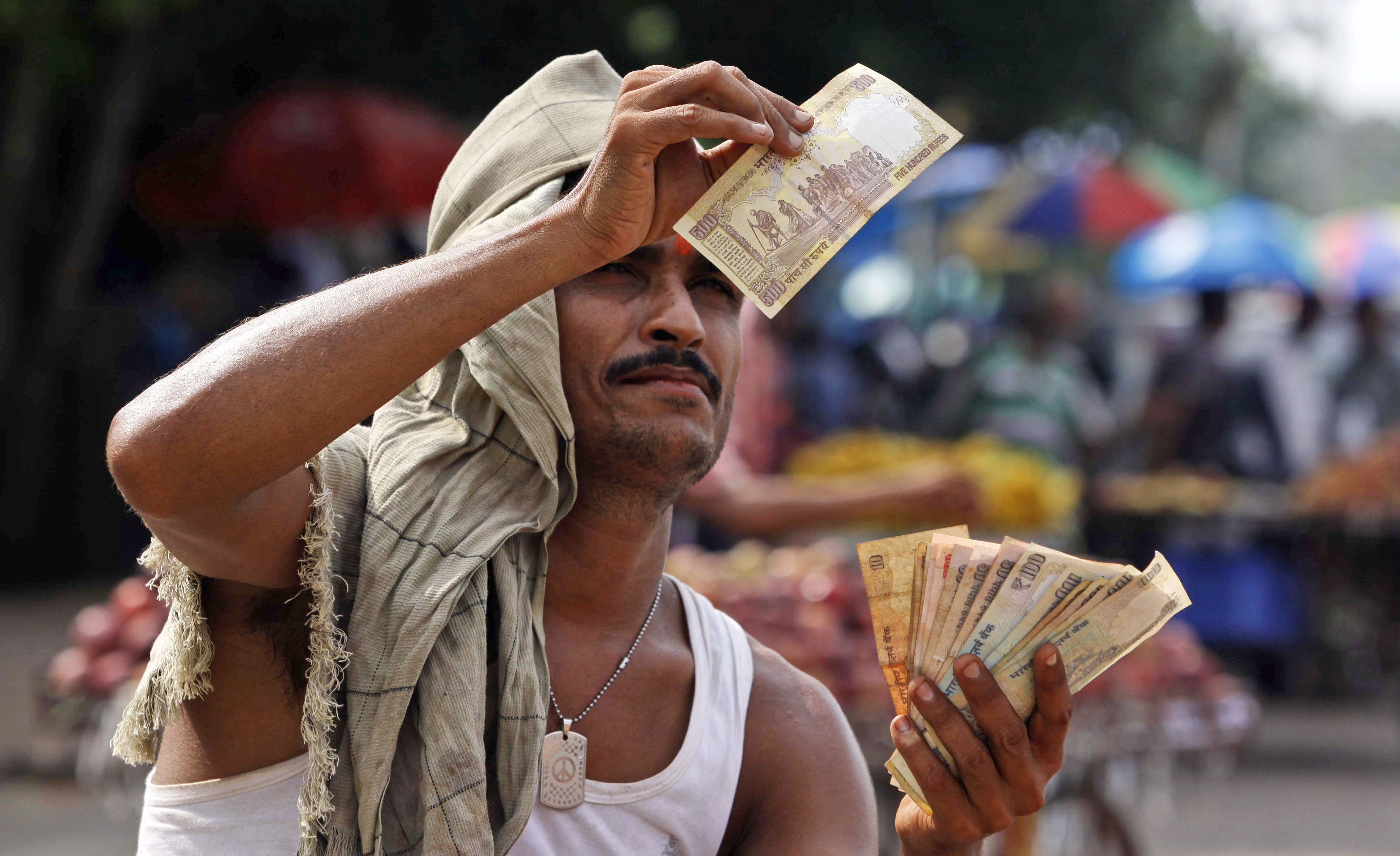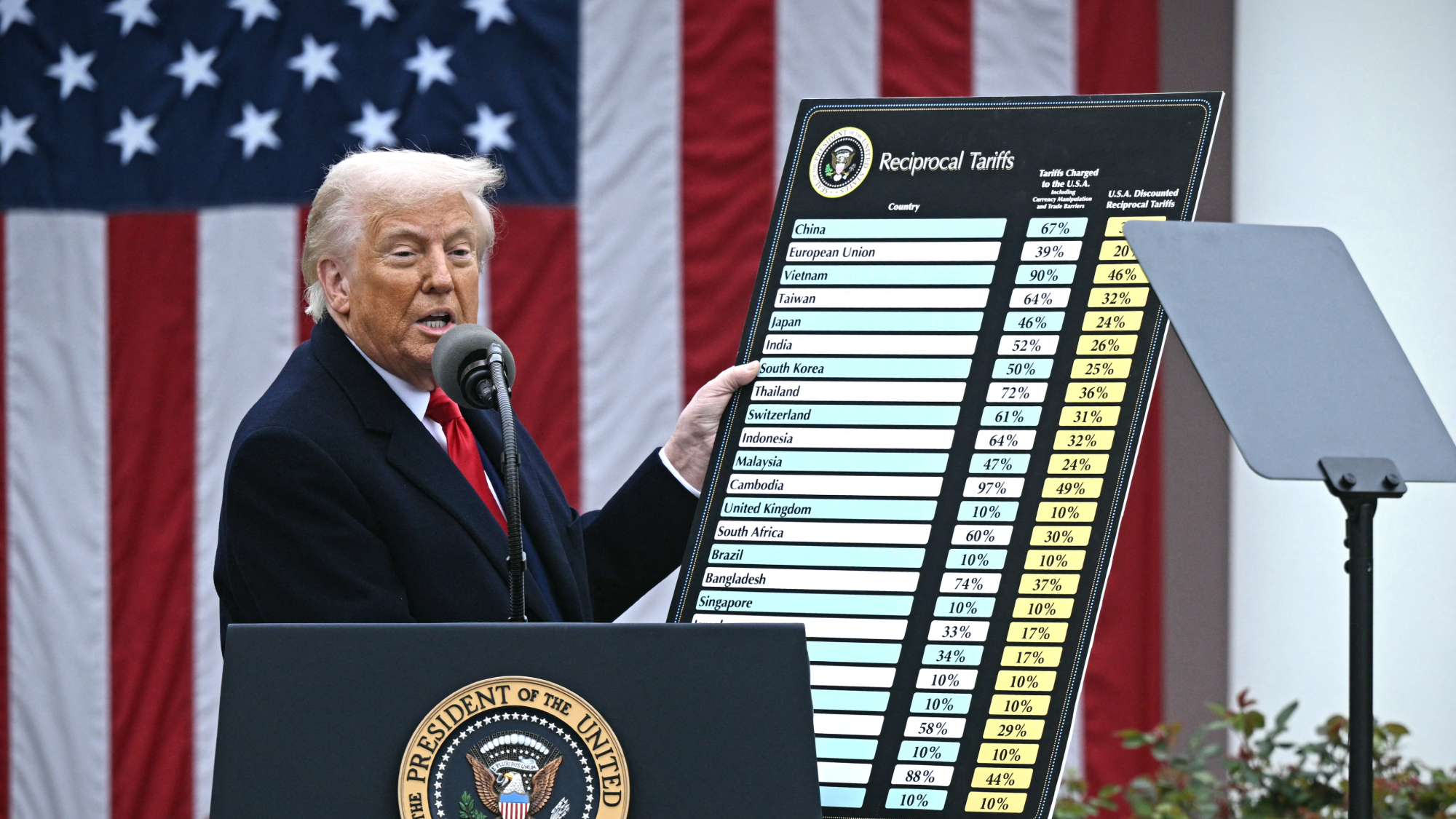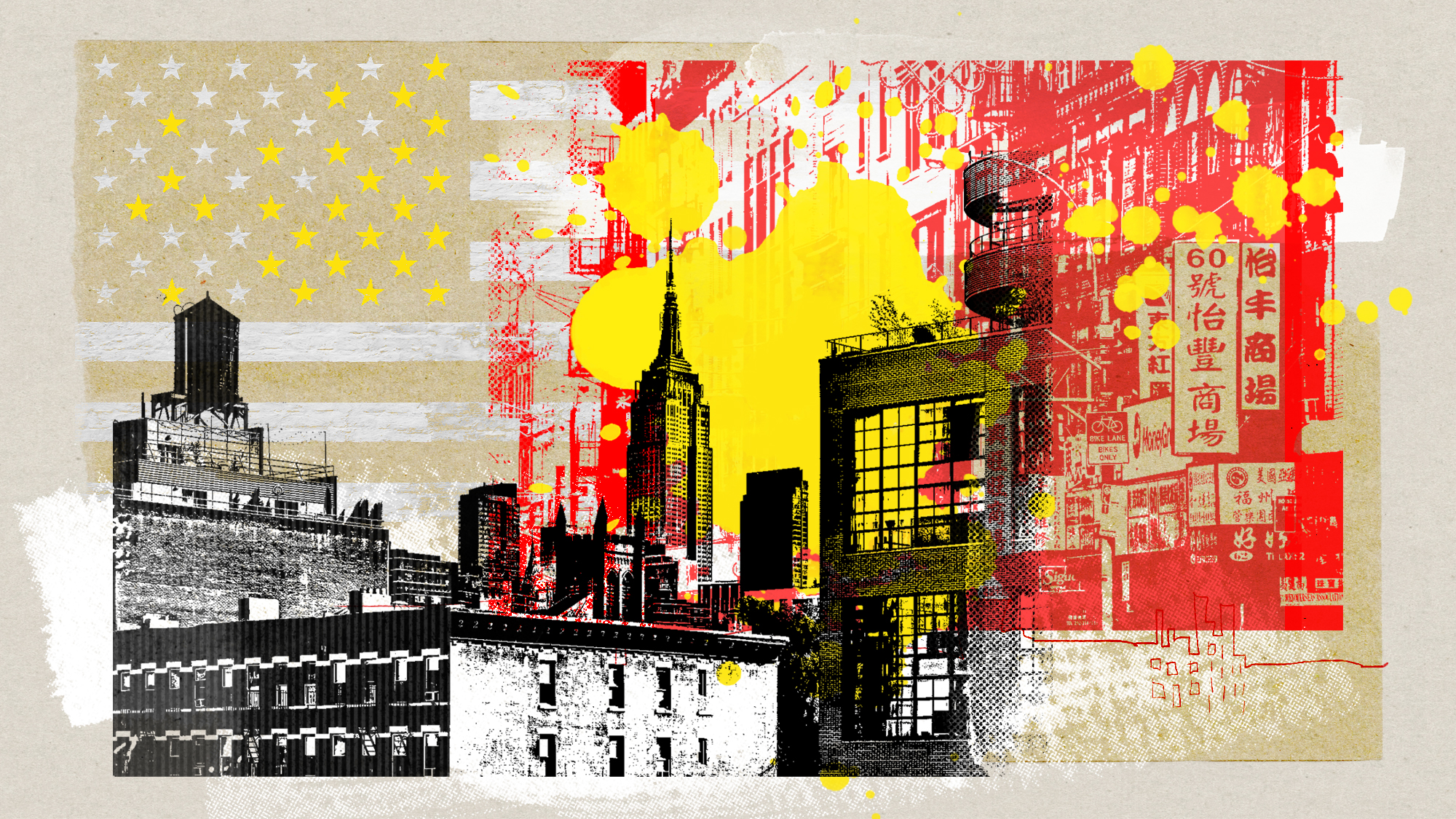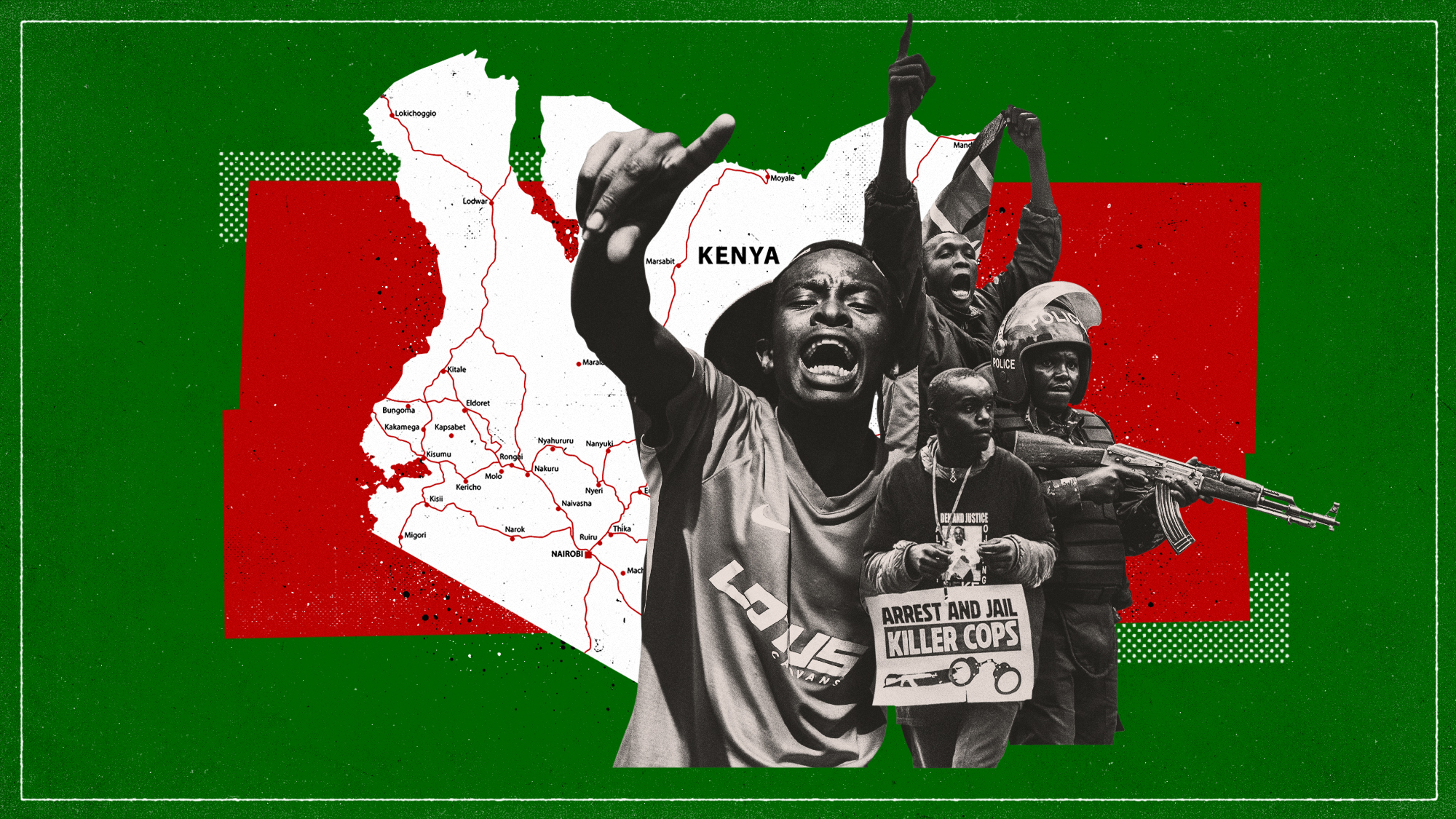The end of India's economic liberalization
Narendra Modi is trying to save India's economy. Instead, he's wrecking it.


Indian Prime Minister Narendra Modi stunned his country earlier this month when, out of the blue, he declared 85 percent of the nation's currency notes null and void.
India's two highest rupee notes — Rs. 500 ($7.50) and Rs. 1,000 ($15) — will no longer be legal tender, and will be replaced with redesigned Rs. 500 notes and new Rs. 2,000 bills. Indians can swap a relatively small number of old bills for new ones by the end of the year, but only at designated banks and with proof of ID. Anyone trying to swap large sums of cash that they can't legally account for will be subject to investigation and legal action.
Modi's fans see this as an audacious move to smoke out untaxed "black money" from India's informal economy, which constitutes anywhere from 25 to 40 percent of the nation's GDP. But in reality, this demonetization scheme is the equivalent of killing the patient to cure a headache. And it marks an end to India's three-decade flirtation with market liberalization.
The Week
Escape your echo chamber. Get the facts behind the news, plus analysis from multiple perspectives.

Sign up for The Week's Free Newsletters
From our morning news briefing to a weekly Good News Newsletter, get the best of The Week delivered directly to your inbox.
From our morning news briefing to a weekly Good News Newsletter, get the best of The Week delivered directly to your inbox.
Modi was elected in a landslide on the slogan of "Minimum Government, Maximum Governance." He promised to end babu raj — the rule of corrupt, petty bureaucrats who torment ordinary citizens for bribes — and radically transform India's economy. But rather than tackling government corruption, he has declared war on private citizens holding black money in the name of making all Indians pay their fair share.
Tax scofflaw behavior is indeed a problem in India. But it is almost always a result of tax rates that are way higher than what people think their government is worth. The enlightened response would be to lower these rates and improve governance. Instead, Modi is taking his country down what Nobel-winning political economist F.A. Hayek called the road to serfdom, where every failed round of coercive government intervention simply becomes an excuse for even more draconian rounds — exactly what was happening in pre-liberalized India.
Last year, Modi went after black money stashed in Swiss banks, demanding that Indians with such accounts pay a 30 percent penalty and bring their money home or face a lengthy jail sentence. This scheme was a flop.
Next Modi offered Indians hoarding illegal assets amnesty from prosecution in exchange for paying a 45 percent penalty. But this flushed out only a small fraction of the expected haul, for the simple reason that the penalty was higher than the taxes people were trying to avoid.
A free daily email with the biggest news stories of the day – and the best features from TheWeek.com
So now Modi has ripped a dusty page from the playbook of communist dictatorships (Soviet Union, North Korea, Cuba), military juntas (Myanmar, Pakistan), various other kleptocratic banana republics, and India circa 1978 — all of whom tried demonetization and failed.
The theory with Modi's new scheme is that rich hoarders of illicit cash would simply forfeit their money rather than risk jail. Meanwhile, middle-class folks who work for legitimate businesses and poor laborers who have small cash savings would be free to legally swap old bills for new.
The reality is different. Yes, the rich have indeed gotten poorer. But the poor have been decimated. Call it trickle-down poverty.
About 600 million poor and uneducated Indians don't have bank accounts. Roughly 300 million don't have official identification. It's not easy to swap their soon-to-be worthless cash, which is a catastrophe given that they live hand to mouth. It is heartbreaking to see these people lined up in long queues outside post offices and banks, missing days and days of work, pleading for funds from the very bureaucrats from whose clutches Modi had promised to release them.
Modi hatched his scheme in complete secrecy, without consulting his own economic advisers or the Parliament, lest rich hoarders catch wind and ditch their cash holdings for gold and other assets. Hence, he could not order enough new money printed in advance. This is a massive problem given that about 90 percent of India's economic transactions are in cash. People need to be able to get money from their banks to meet basic needs. But the government has imposed strict limits on how much of their own money people can withdraw from their own accounts.
Patients needing critical care are being turned away because they don't have new bills, and hospitals won't accept the old denominations. Old people are being forced to choose between food and medicine. Some farmers, living on the brink of financial catastrophe given their meager savings, have committed suicide as produce sales plummet. Industries dominated by small businesses that rely on private, off-the-grid financing from local money lenders and have no access to India's meager official credit institutions are getting wiped out.
Modi insists the trauma is temporary and worth it because more Indians will be forced into the formal economy that can be tracked and taxed to fund vital infrastructure and boost growth. But that assumes that India's bloated, corrupt, and inefficient government can spend other people's money better than they can. In truth, the government will waste the new funds while rich people, whose wealth has been confiscated, will cut back consumption and lay off their employees.
But the biggest tragedy of Modi's demonetization scheme is that because it does nothing to eliminate the underlying causes of black money — India's tax burden that includes hidden levies such as bribes to bureaucrats — won't disappear. People will simply park less of it in cash and more in harder-to-trace, non-cash assets such as gold and real estate, which already account for almost 60 percent of household savings. (Poor households have taken to buying jars of Tide to barter for goods and services, giving new meaning to the term money laundering.)
And you can be sure that Modi, who has already warned of further action before the end of the year, will go after gold and other assets next. He's already raised excise duties on gold and requires jewelers to check the tax identification card of anyone purchasing gold worth over $3,000, echoing India's notorious 1968 Gold Control Act that criminalized gold holdings by private citizens.
As for real estate, it's possible that Modi might try a demonetization equivalent for illicit property called the E-Property Pass Book scheme. Essentially, all property ownership would be declared invalid for one year, with property sales banned. During that time, owners would be required to re-register their property in an electronic passbook linked to the equivalent of India's Social Security numbers, by personally appearing before authorities and showing proof of ownership. Properties that are not re-registered would default to the government, just like unswapped black money holdings.
This is not boldness, but sheer conceit based on the misguided notion that people have to be accountable to the government, rather than vice versa. Over time, it will undermine the already low confidence of Indians in their institutions. If Modi could unilaterally and so suddenly re-engineer the currency used by 1.1 billion people, what will he do next? This is a recipe for capital flight and economic retrenchment.
The fear and uncertainty that Modi's move will breed will turn India's economic clock back to the dark times of pre-liberalized India — not usher in the good times (aache din) that Modi had promised.
Shikha Dalmia is a visiting fellow at the Mercatus Center at George Mason University studying the rise of populist authoritarianism. She is a Bloomberg View contributor and a columnist at the Washington Examiner, and she also writes regularly for The New York Times, USA Today, The Wall Street Journal, and numerous other publications. She considers herself to be a progressive libertarian and an agnostic with Buddhist longings and a Sufi soul.
-
 6 homes built in the 1700s
6 homes built in the 1700sFeature Featuring a restored Federal-style estate in Virginia and quaint farm in Connecticut
-
 Tariffs: Will Trump’s reversal lower prices?
Tariffs: Will Trump’s reversal lower prices?Feature Retailers may not pass on the savings from tariff reductions to consumers
-
 American antisemitism
American antisemitismFeature The world’s oldest hatred is on the rise in U.S. Why?
-
 Americans traveling abroad face renewed criticism in the Trump era
Americans traveling abroad face renewed criticism in the Trump eraThe Explainer Some of Trump’s behavior has Americans being questioned
-
 Nigeria confused by Trump invasion threat
Nigeria confused by Trump invasion threatSpeed Read Trump has claimed the country is persecuting Christians
-
 Sanae Takaichi: Japan’s Iron Lady set to be the country’s first woman prime minister
Sanae Takaichi: Japan’s Iron Lady set to be the country’s first woman prime ministerIn the Spotlight Takaichi is a member of Japan’s conservative, nationalist Liberal Democratic Party
-
 Russia is ‘helping China’ prepare for an invasion of Taiwan
Russia is ‘helping China’ prepare for an invasion of TaiwanIn the Spotlight Russia is reportedly allowing China access to military training
-
 Interpol arrests hundreds in Africa-wide sextortion crackdown
Interpol arrests hundreds in Africa-wide sextortion crackdownIN THE SPOTLIGHT A series of stings disrupts major cybercrime operations as law enforcement estimates millions in losses from schemes designed to prey on lonely users
-
 China is silently expanding its influence in American cities
China is silently expanding its influence in American citiesUnder the Radar New York City and San Francisco, among others, have reportedly been targeted
-
 How China uses 'dark fleets' to circumvent trade sanctions
How China uses 'dark fleets' to circumvent trade sanctionsThe Explainer The fleets are used to smuggle goods like oil and fish
-
 One year after mass protests, why are Kenyans taking to the streets again?
One year after mass protests, why are Kenyans taking to the streets again?today's big question More than 60 protesters died during demonstrations in 2024
